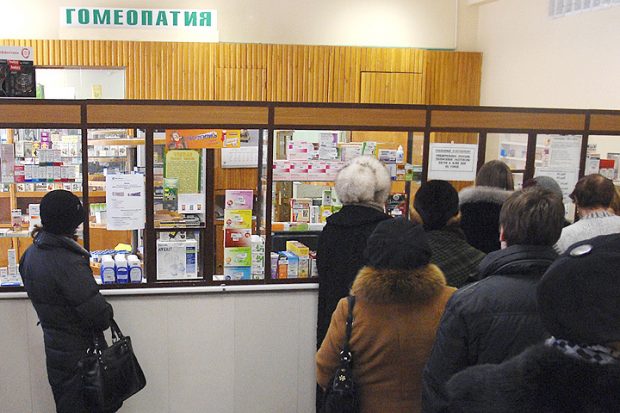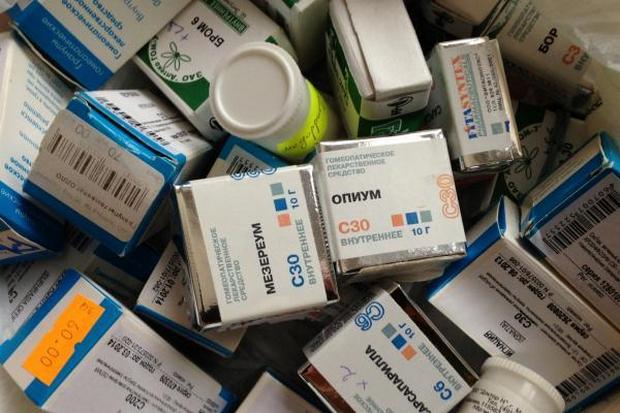Brouhaha over homeopathy attracts new supporters?
Supporters of homeopathy assure that the actions of RAS only heighten the interest in it, however, pharmacies do not observe an increased demand for such medicines, but at the same time they do not hasten to remove the preparations from the shelves
The fate of homeopathy is being decided: the Health Ministry of the Russian Federation is creating a working group that will decide the fate of the use of homeopathic treatments in Russia. Meanwhile, some doctors claim that the brouhaha only fuels the interest in homeopathic drugs. Representatives of chemist's networks, however, do not observe an increased demand for these drugs. However, they are not in a hurry to remove homeopathic products from the shelves before the official ban on their sale.
''Those who did not know about homeopathy have become interested in it''
It has been only three weeks since the Russian Academy of Sciences prepared a memorandum ''On pseudoscientific character of homeopathy''. However, doctors in Kazan say that the fuss in the media around this event has increased the public interest in homeopathic methods and means. Gulnara Safiullina, Doctor of Medical Sciences, representing the Department of Neurology, Reflexotherapy and Osteopathy of the Kazan State Medical Academy told about this to Realnoe Vremya.
''Those who did not know about homeopathy have become interested in it, people are tired of taking chemical medicines,'' she explains. ''The future of treatment belongs to homeopathy, and it should not be taken aggressively. Disagreement is due to a lack of understanding of the mechanism of action of homeopathic preparations. If there is no understanding, it does not mean that the method has no right to exist.''

Pharmacies do not observe an increased demand, but they do not hasten to remove the drugs from the shelves
However, this is only an opinion of supporters of homeopathy. Pharmacies do not observe an increasing demand for homeopathic preparations.
''We are not observing either less or increased demand. Nobody do not make reserves, fearing that they (homeopathic preparations – editor's note) will remove the drugs from the shelves. We do not observe, for example, that the sale of the drug Oscillococcinum by Boiron has increased or fell dramatically,'' says Director General of Apteki 36,6 PLC Arthur Urazmanov in conversation with the correspondent of Realnoe Vremya.
Alfiya Nugumanova, Director General of pharmacy network Sakura, gives a similar assessment.
''I think nothing has changed: people who believed, they continue to believe, those who did not believe, they continue not to believe. Any field has a reason. Imagine Germany, where homeopathy is very well represented. The Germans are not fools if it has been working for so many years, then why to ban all of this. Everyone has a right to take drugs or not to.''
At the same time, the pharmacies are not in a hurry to remove homeopathic preparations from the shelves.
''While there is no official order, no one divides homeopathic and traditional medicines,'' says Urazmanov. ''We, as market participants, will follow the letter of the law.''

Osteopaths stand up for homeopaths
However, eventually they might have to remove the drugs. Lyailya Bairamova, Vice-President of Tatarstan branch of the Russian Osteopathic Association considers the persecution of homeopathy to be ''the order of pharmaceutical companies''.
''Cheap treatment is better for patients, but not profitable for pharmaceutical companies. Patients do not buy expensive drugs. In Europe, they all use them (homeopathic preparations — editor's note), the same Germans will not give the drug to patients without checking,'' she believes.
However, Urazmanov does not share such point of view: ''It is not quite right to say that corporations were at war among themselves. Someone said, someone supported (recognition of homeopathy a pseudoscience — editor's note). It was just an opinion of the memebers of the Academy of Sciences.''
Nevertheless, the opinion of osteopaths is possible to understand: the society and professional environment have an ambiguous attitude to their methods, as well as to homeopathic ones. The Russian Academy of Sciences, starting to deal with homeopaths, can continue its crusade against alternative methods of treatment.

Is homeopathy a pseudoscience?
In early February this year, the commission to combat pseudoscience at the Presidium of the Russian Academy of Sciences (RAS) prepared the memorandum ''On pseudoscientific character of homeopathy''. The document says, ''treatment with ultra-low doses'' of homeopathic drugs has no ''scientific basis and justification''. The commission advised the Health Ministry to withdraw all homeopathic medicines from public hospitals and the antimonopoly service to protect citizens from false advertising about the presence of ''medicinal properties'' in such drugs. The Health Ministry has promised to respond to the arguments of the memorandum once it will be available to the department.
Following this, Russian Health Minister Veronika Skvortsova instructed to create a working group at the Ministry of Health that will decide the fate of the use of homeopathic treatments in Russia. The main task of the working group will be ''to develop proposals for the further regulation of this area'' given the current international requirements of evidence-based medicine. It is noteworthy that in the list of vital and essential drugs there are no homeopathic preparations. As Realnoe Vremya reported, they are not included in the clinical guidelines on medical profiles.
In Tatarstan, there were a lot of dissenters with the assertion of RAS that homeopathy is not a science. So, Rustem Safiullin, head of the Department of Roszdravnadzor in Tatarstan did not support the idea to ban: ''It has not been proved documentary yet, and no action on the prohibition of the homeopathic treatment has been taken. It continues to evolve as it elolved. I believe it is an ancient science, it has a right to exist. There has not been any appeal from the population,'' said the head of the Health Ministry of RT, reporting on its work in 2016.